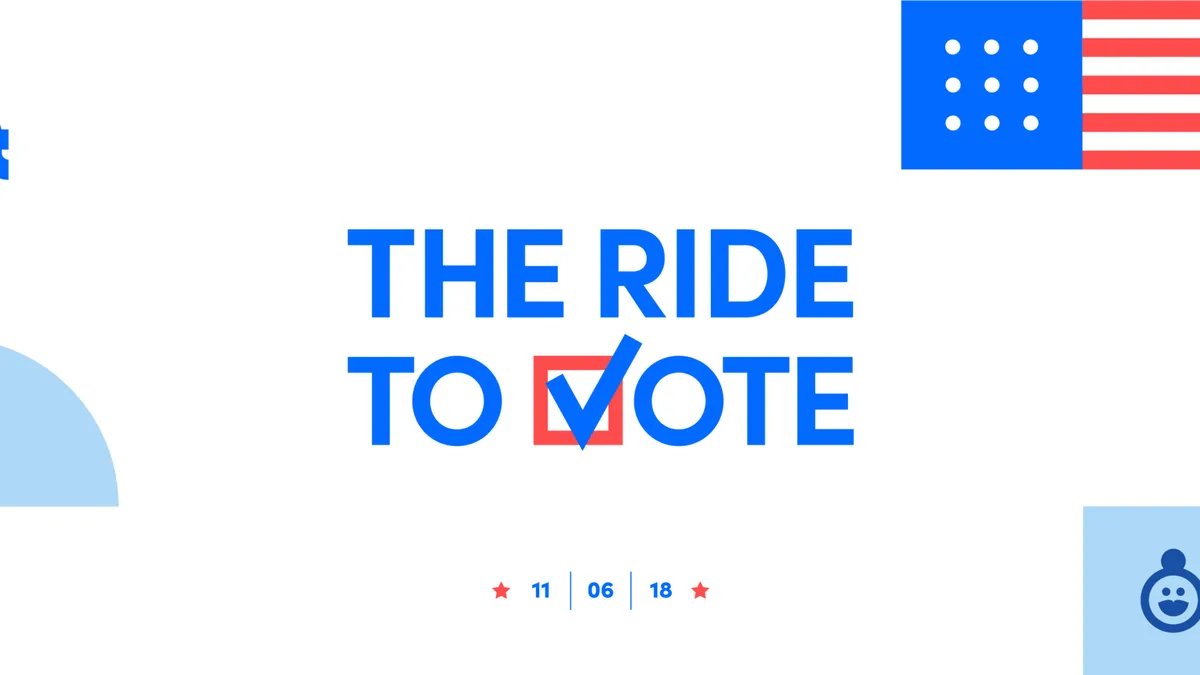Dive Brief:
- Lyft announced Thursday it is offering 50% off rides to polling sites on Election Day (Nov. 6), and will provide free rides to underserved communities in partnership with Vote Latino and other nonprofits.
- The ride-hailing giant will also send notifications to passengers about voter registration deadlines, offer in-office registration for employees and aid voter registration drives and encourage employees, drivers and riders to volunteer for voter engagement organizations.
- Besides Vote Latino, Lyft is also partnering with groups like When We All Vote, Vote.org, Nonprofit Vote and TurboVote to distribute its discount codes on election day.
Dive Insight:
The Center for Information and Research on Civic Learning and Engagement (CIRCLE) found that among the 6 million people under the age of 30 who were registered but did not vote on Election Day in 2016, transportation was the third-most common reason (not liking the candidates and being too busy were the top excuses). The transportation barrier loomed larger among minorities and voters with no college education.
Cities, nonprofits and companies worked hard in the 2016 election to rally rides to the polls. Lyft offered similar discounts and free rides, while VoterDrive offered free Uber rides to new users. Zipcar also offered up 7,000 vehicles between 6 pm and 10 pm, for voters with limited transportation options in the evening, according to Recode. Some cities even offer free public transit on election days, although the practice is not widespread and is often limited even in cities that offer it.
Cities are increasingly looking to new technology to drive up civic engagement and voter rolls. Washington, DC, for example, is working with the neighborhood social media service NextDoor to inform citizens about registration deadlines, ballot measures and voting information in a bid to boost turnout. In New York City, the group Make The Road Action targeted volunteers with neighborhoods they were familiar with for canvassing efforts to help drive turnout, an effort covered by Next City.
Even with the ride options in 2016, only about 58% of voters made it to the polls — Lyft likely faces an uphill battle in getting those numbers up given that voter turnout is typically low during midterms. But partnerships like this that can make getting the polls one step easier should have some positive impact.











